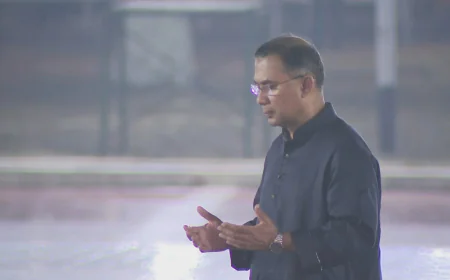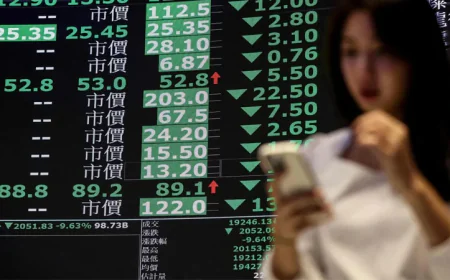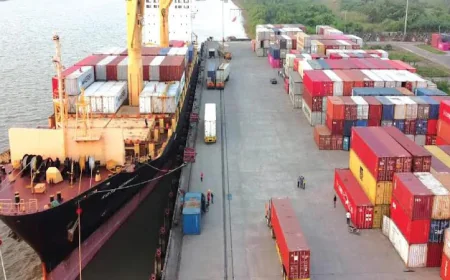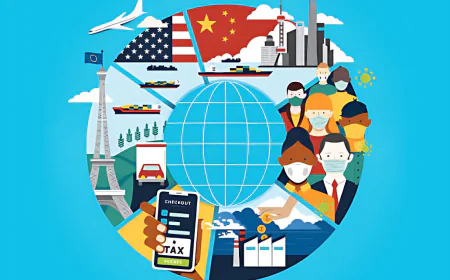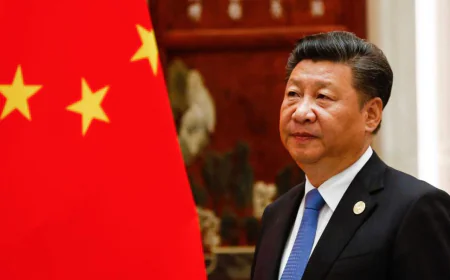Preparing Bangladesh for the Inevitable Shift
The Rise of AI and the Shrinking Space for Human Employment
The rapid rise of artificial intelligence is threatening traditional employment sectors in Bangladesh and urges immediate educational, technological, and policy reforms to prepare for the changing landscape.
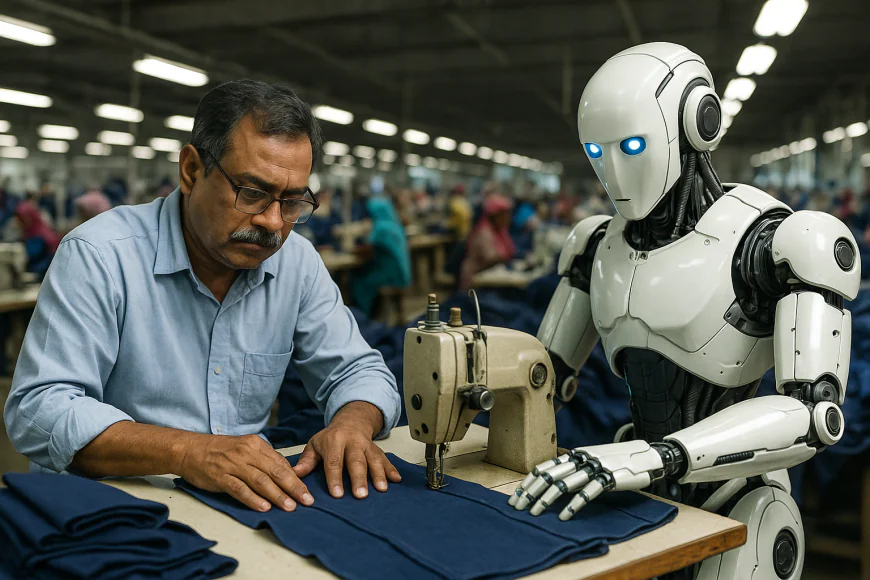
We are living in a time of quiet revolution—one that does not roar through the streets or erupt in public squares, but hums silently through circuits, algorithms, and lines of code. The rise of artificial intelligence is perhaps the most transformative force of our generation. It is altering the way the world works, reshaping industries, and redefining what it means to be employed. For Bangladesh, a country striving to maintain its position as a rising economic player, this revolution is both an unprecedented opportunity and an alarming threat.
Artificial intelligence, once a subject confined to science fiction and research labs, has now permeated daily life. From virtual assistants on smartphones to algorithmic trading in stock markets, AI is no longer a future concept—it is present, active, and accelerating. In advanced economies, companies are deploying AI tools not just to assist workers, but to replace them. Machines now write articles, drive vehicles, diagnose diseases, and translate languages with increasing accuracy and speed. The shift is not coming. It is already here.
This reality poses serious implications for Bangladesh, whose economic backbone is built on labor-intensive sectors. The readymade garments (RMG) industry, for instance, employs millions and contributes significantly to the national GDP and export earnings. Its success has historically relied on the availability of cheap labor. But as global fashion brands increasingly embrace automation in textile production—installing smart sewing robots, automated quality control systems, and AI-driven logistics—the cost advantage of Bangladeshi labor begins to erode. If our factories fail to modernize while other countries increase output using fewer workers, we may soon find ourselves at a disadvantage in global competition.
Moreover, the threat is not restricted to manual labor alone. The service sector, especially outsourcing and business process operations (BPOs), has become a growing employment avenue in recent years. Yet these jobs are now vulnerable too. AI chatbots and virtual agents powered by natural language processing are replacing human representatives in call centers. Automated tools are performing back-office tasks like data entry, scheduling, and even customer feedback analysis. What was once considered "safe" white-collar work is being quietly absorbed by lines of code.
The financial sector is experiencing similar tremors. Banking services increasingly rely on AI for fraud detection, credit scoring, and customer interaction. In doing so, they reduce their need for human workers at the counters and behind the scenes. Even journalism and media—the fourth estate—are not immune. AI models can now generate news summaries, sports reports, and even market analysis, pushing traditional roles like sub-editing and desk reporting toward obsolescence.
Faced with this paradigm shift, Bangladesh stands at a crucial crossroads. Will we watch passively as automation reshapes the world and leaves our workforce behind, or will we take bold, forward-looking steps to adapt and evolve? The answer lies not in resisting technology, but in embracing it with strategic foresight. To do that, we must reimagine the way we prepare our citizens for the future.
Our education system must become a launchpad for the next generation of thinkers, technologists, and innovators. Right now, it largely fails to equip students with skills relevant to the 21st century. Rote memorization still dominates classrooms, while creativity, digital fluency, and problem-solving are neglected. If Bangladesh is to compete in a world led by algorithms and automation, it must cultivate a workforce capable of designing, managing, and improving these very systems. Computer science, data analysis, ethical AI, and machine learning should no longer be reserved for a privileged few—they must be mainstreamed into national curricula.
At the same time, attention must be paid to the existing workforce. Millions of adults who are employed in vulnerable sectors cannot be abandoned. Their knowledge and experience are valuable, but they need to be paired with new skills to stay relevant. Nationwide training and upskilling programs, funded through public-private partnerships, are no longer optional—they are essential. Government agencies, universities, industries, and NGOs must collaborate to provide accessible retraining pathways in areas like digital tools, coding, AI-assisted workflows, and entrepreneurship.
Equally important is the role of policy. Without strong and ethical governance, AI may deepen inequality and exploit workers rather than empower them. We need clear regulations that promote responsible AI use while protecting jobs, ensuring privacy, and upholding transparency. Innovation must be encouraged, but not at the cost of the most vulnerable.
The AI revolution is not inherently negative. It holds the promise of improved productivity, better healthcare, safer transportation, and more informed decision-making. But like all powerful tools, its impact depends on how we choose to wield it. For Bangladesh, the challenge is to harness this force not as a threat to our people, but as a means to uplift them. We must move beyond denial and inertia. If we invest wisely in education, training, infrastructure, and innovation today, we can transform this period of disruption into an era of opportunity.
Bangladesh has weathered many challenges in the past—political upheavals, economic uncertainties, and global crises. But this time, the challenge is quiet, invisible, and deeply structural. It does not come with warning sirens or visible destruction, but its consequences may be just as devastating if ignored. The age of artificial intelligence is here, and it will not wait for us to catch up. If we are to preserve our hard-earned economic progress and protect the dreams of our next generation, we must act—boldly, urgently, and collectively.


